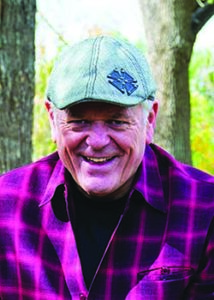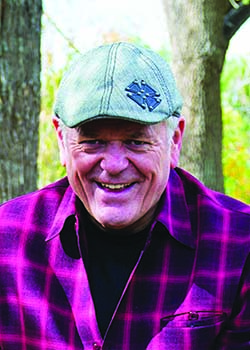By Ken Wells, MDiv, MA, LPC, CSAT, LSAC “Somebody loves you if they call you out on your bullshit. They’re not passive, they don’t just let you get away...
By Ken Wells, MDiv, MA, LPC, CSAT, LSAC
“Somebody loves you if they call you out on your bullshit. They’re not passive, they don’t just let you get away with murder. They know you well enough and care about you enough to ask you to chill out, to bust your balls, to tell you to stop. They aren’t passive observers in your life, they are in the trenches. They have an opinion about your decisions and the things you say and do. They want to be a part of it; they want to be a part of you”. —Ryan O’Connell
Much of my life has been about caretaking. I felt the need to take care of my mother’s feelings, my dad’s fatigue and to please my older brother’s expectations. I became a pastor. I sat with families who lost loved ones. I absorbed the pain of those whose hearts were broken by other tragedies. I worked in large churches as an assistant and focused on caretaking the senior pastor and others. I sought approval through comforting others and rescuing them from their plights. Subconsciously, I hoped that if I cared enough for you, the universe would reward my good deeds and make me happy. It didn’t work. It hurt me and it hurt the ones I tried to care for. The harder I tried to rescue others, the more I felt victimized. I watched my efforts to care for others blow up in my face. I felt disillusioned and overwhelmed. Underneath I was very angry.
Caretaking others is common
It is the act of taking responsibility for other people while neglecting responsibility for ourselves. It is subtle and blinds the insight of the caretaker. They often don’t see the destructive nature of their caretaking. It immobilizes others from developing their own capability of taking responsibility for themselves. Parents caretake their kids with their advice, judgment, money and other forms of control. It always backfires. Caretaking is a curse that debilitates everyone involved. Here are a few considerations to address caretaking:
Face what you fear will happen if you don’t caretake. Ask yourself the question, what are you really afraid will happen if you don’t rescue? Explore not only what happens to your loved one but what do fear will happen to you? Ultimately, you will need to embrace unwanted feelings of angst, anxiety, rejection, abandonment, etc. Sit with your fear. Take responsibility for your own feelings and learn you can survive even thrive — without taking responsibility for someone else’s feelings and responsibilities.
DETACH. Clinging to the control that caretaking requires is exhausting and is ineffective. You must let go and allow your loved one to face the consequences for their choices and behavior. They won’t take the path you would choose. The path they choose may be circuitous but eventually will take them where they need to be. They will find their peace in life on their own terms, not yours. So, ease your own pain by letting go and choosing to no longer rescue.
SET BOUNDARIES. Create internal boundaries around your obsessional thinking towards caretaking your loved one. You may need to practice a 3-second rule by interrupting your compulsive thoughts to rescue and focus elsewhere. It will take conditioning. You will need to set external boundaries and disengage from the activity and presence of your loved one. Setting up physical boundaries of no or limited contact will be required and is difficult.
BE TRUE TO YOURSELF. Separation will help clear the air. You will see more clearly what your personal needs are. The most generous behavior you can choose is to take responsibility for yourself. Taking care of what you feel, want and need can only happen when you separate from caretaking others. It’s a way of being true to yourself. Being true to yourself allows others to take responsibility for themselves.
Frequently, the frenetic activity from family and friends that surrounds an addict is about rescuing and caretaking. The resolution is for the caretaker to stop and embrace their own vulnerability to hurt and personal pain. Only then can the compelling urge to rescue give way to acceptance and personal peace.
For more information on Ken Wells, Psychological Counseling Services or the PCS Intensive Program, please visit website www.pcsintensive.com. 480-947-5739

Ken Wells’ therapy focus is on Partner Betrayal Trauma, Couples therapy (specialty betrayal trauma), Depression recovery, Cognitive Behavioral, Experiential- Outdoor Therapy, Sex Offender Therapy.




























